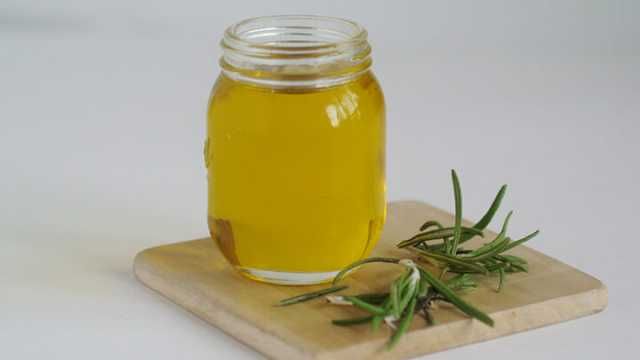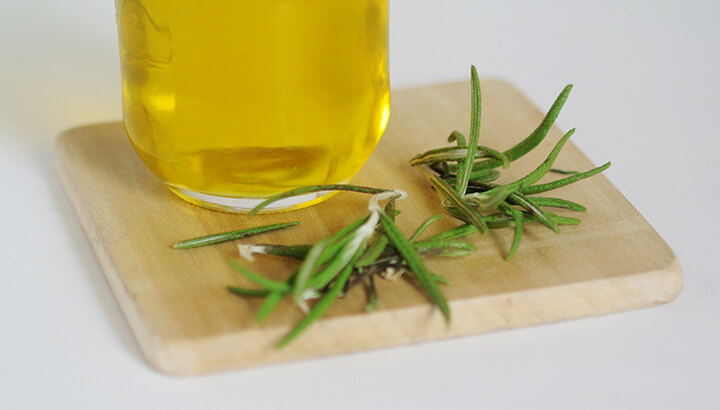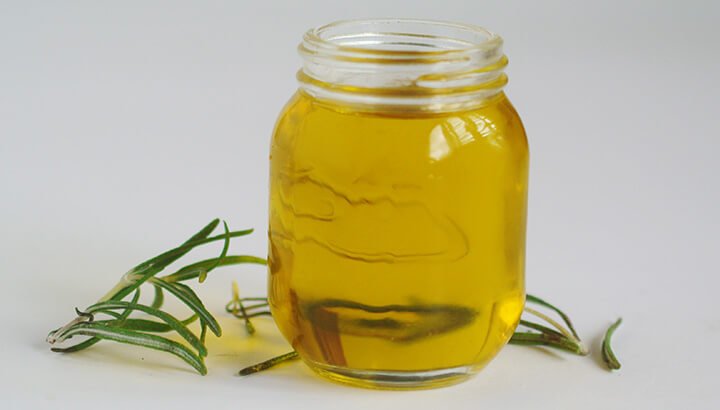
Four years ago, I started making all of my own organic soaps, creams and even sunscreen. It was during this time that I really began to take an interest in various oils and butters, in order to better understand how they would benefit my skin and overall health.
When balancing a handmade soap recipe, I like to use a combination of both soft and hard ingredients. For instance, I generally combine shea butter, cocoa butter and coconut oil to create a firmer soap. I add olive, castor and hemp oil as my “softer” ingredients to maximize moisturizing benefits.
Throughout my research, there was one oil that came up time and time again, and for good reason — jojoba oil. For centuries, Native Americans would extract the oil from jojoba seeds in order to treat sores and wounds. It is the perfect oil for nearly all skin types, allowing you to achieve hydration without any heavy, oily shine.
Why choose jojoba?
Our “medicine” cabinet at home is full of all kinds of goodies, including a variety of carrier oils. Jojoba oil, which is technically a liquid wax, is generally an optimal choice because it is chemically similar to your skin’s natural sebum. As we age, our glands produce less sebum, resulting in potentially dry skin and hair.
Related: Rejuvenate Your Hair And Skin With Jojoba Oil
When applying this oil, your skin can achieve a more natural balance in terms of oil levels. Today, this oil is commonly used to treat acne, chapped skin, sunburn and psoriasis. Since it does not contain any chemicals, it’s a great solution for dry skin and eczema, without the worry of irritation or an allergic reaction.
Although it can be used as a natural makeup remover or preventative measure for razor burn, jojoba oil can heal and promote overall skin health. Being non-comedogenic, this oil will not clog your pores. Instead, it acts as a cleanser and protectant. Rich in iodine, it is able to target the harmful bacteria which often lead to breakouts.
As this oil’s natural antioxidants are absorbed into the skin, they will also target fine lines and wrinkles. The same is true for wound-healing. Jojoba oil will accelerate this process by stimulating collagen synthesis. In fact, within one study published in the Journal of Ethnopharmacology, jojoba oil was found to accelerate wound closures.
If you suffer from acne, jojoba will also target inflammation. It will also enhance the healing process. Within one Swiss study, 194 participants with acne-prone, lesioned skin were instructed to apply a clay and jojoba oil facial mask two to three times weekly for a total of six weeks.
After six weeks of treatment, participants experienced a 54 percent reduction in total lesions. Both inflammatory and noninflammatory lesions were reduced. It’s an ideal oil to have on-hand at all times. It’s able to control oily skin, moisturize dry skin, control acne, reduce the effects of sunburn and even help treat skin conditions such as eczema.
The addition of essential oil

The second ingredient we’ll focus on is an essential oil — so feel free to get creative here. Based on your skin and your goals, you can select an essential oil that offers the properties you desire. Some oils will target acne and aging. Others will combat scarring, reduced elasticity, oiliness or dryness. Here are just a few of your options:
- Tea tree oil: This oil is ideal for acne-prone skin. It offers antibacterial properties that also assist in healing and oil regulation.
- Neroli: If you have sensitive or mature skin, neroli is generally a good choice. It helps smooth fine lines and supports the regeneration of cells.
- Geranium: Once again, this oil will help acne-prone and oily skin, but it will also promote blood circulation. Meaning, if you have wounds such as cuts, bruises or broken capillaries, it will assist healing.
- Rosemary: Offering antimicrobial and antiseptic properties, this oil reduces symptoms of eczema, oily skin, dermatitis and acne. It is able to both tone and protect, reducing damage from the sun and free radicals.
- Lavender: Great for both sensitive and acne-prone skin, lavender is able to restore skin complexion and reduce dry skin, acne and age spots.
Just remember, essential oils must be diluted in a carrier oil to a maximum of 5 percent. You should also always perform a patch test before applying any remedy to a large surface of skin. Also, certain essential oils should be avoided when pregnant, so be sure to do your homework or ask your physician if you have any concerns.
Two-Ingredient Skin Care Remedy

Like most at-home natural remedies, this skin care oil could not be simpler.
Ingredients
- 1 oz jojoba oil
- 1 to 2 drops essential oil
Equipment
- Dark, glass container (for storage)
- Cotton balls
Instructions
1. Combine jojoba oil with your choice of essential oil.
2. After you have completed a patch test, apply to problematic areas with a cotton ball and massage in.
3. Use as needed.
When storing this remedy, be sure to source a dark, glass container. This will protect the integrity of the oils.
Also, if you’d like to use more than one essential oil, no problem. Just add an additional ounce of jojoba oil and mix thoroughly. Always store in a cool, dry location.
— Krista Hillis

